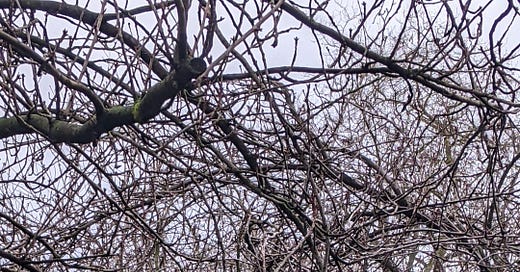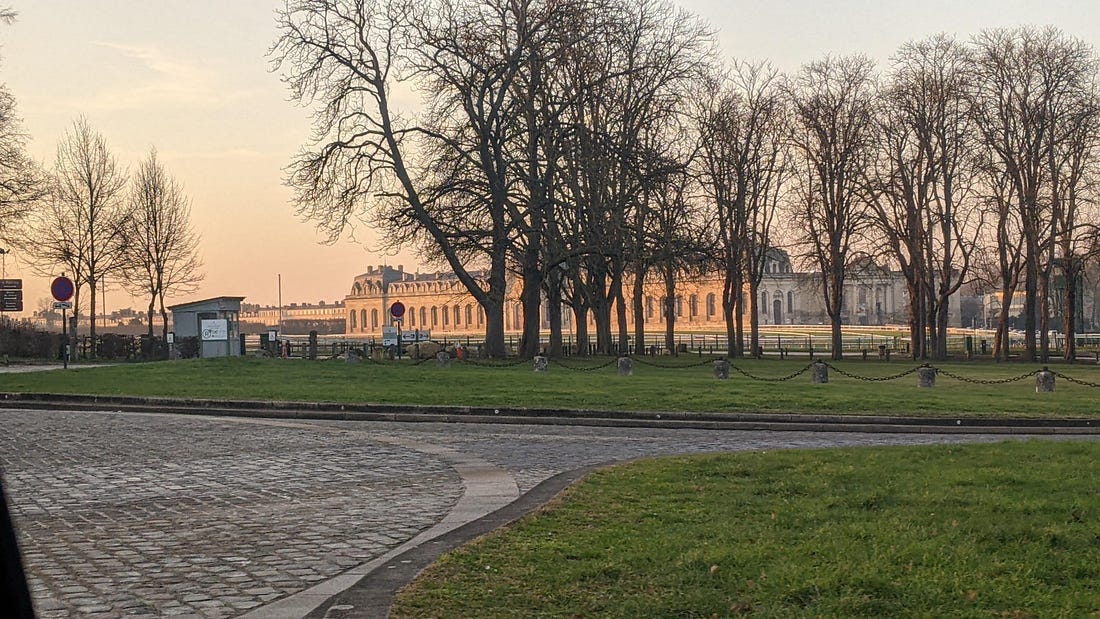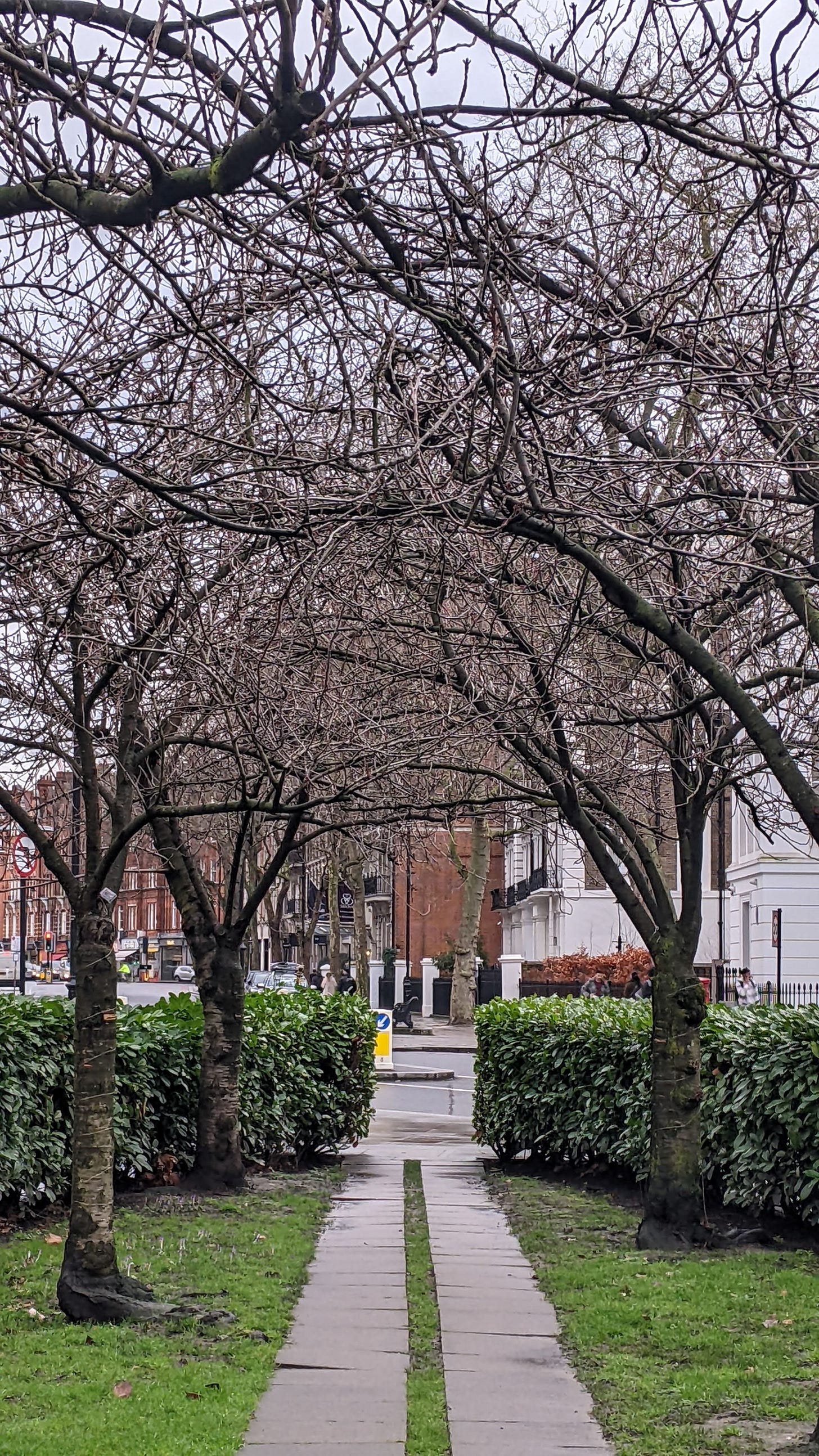When I told my Dad I was going to France for a training programme, he was very excited. “Where in France is the training?”
“I give you one guess Dad.” After a long pause he said, “Chantilly.”
On February 3rd, I left my Dad in hospital to go to Chantilly, France. I arrived with a fellow cohort of about 20 Christians. At the train station, we were picked up by a lovely man who asked if any of us had been to Chantilly before. It won’t surprise you that none of the group had, apart from me. The questions, “When did you come to Chantilly?” and “What were you doing here?” opened a whole world I wasn’t expecting to engage with so soon.
I grew up a Shia Imami Ismaili Muslim, a follower of the Imam, Mawlana Shah Karim Al-Hussaini, the fourth Aga Khan. When I was little, my parents used to take me and my sisters on holiday to mainland Europe with a caravan. On one of those occasions we visited Aiglemont (Eagle’s Mount), the residence of the Aga Khan at that time. We didn’t enter, we just stood outside the main gate and had the obligatory picture taken. His residence was in Chantilly, France.
On hearing this, our driver then took us for a short tour of Chantilly. “These are the Aga Khan’s stables.”
“This is the Aga Khan’s racecourse… Was he a business man?”
My Dad had spent many years working for the Aga Khan, something my father considers a great privilege. He worked in London but often had to travel to Aiglemont to collect film reals from the Aga Khan’s archives. Dad transferred all the footage of the Aga Khan into a digital archive. He was so excited that I was in Chantilly.
I arrived at our course venue having spent the last 20 minutes talking about the Aga Khan. There was a weight upon me, an overwhelming sense that God had brought me to this place at this time for a reason. It was so strange being in a world where everyone knew who the Aga Khan was. He may have left Chantilly some years ago but his presence was missed. He had brought employment and wealth to the area and something else intangible. My state of overwhelm was noticeable and I needed to speak to process what was going on for me and those around me were inquiring into who this man was? I decided to facilitate a session for those that were interested. So on Tuesday evening, after a busy day of training, we settled on some sofas and had a question and answer session.
“Is the Aga Khan a business man?” Yes, and first and foremost he is the religious leader of some 15 million Ismaili Muslims around the world. He is a business man and also a philanthropist. His primary concern is the welfare of his followers. You will see him mix with the rich and famous, yet these connections serve to support his commitment to followers and the world.
“Who are his followers?” His followers, (known as the Jamat), are some of the most faith-filled and dedicated people I have ever known. Each place of worship is run by volunteers. The leaders of these places are appointed for a three year period. This means that every evening for three years they are at the place of worship leading ceremonies. In addition to this, they are responsible for facilitating the ceremonies around births, deaths and marriages. None of this work is paid. Most of the places of worship are cleaned and maintained by volunteers. They believe that whatever they give in service to God will come back to them in abundance.
“Where does his wealth come from?” In addition to the large fortune he inherited, his followers tithe to him. While this is obligatory, it is not policed. Followers give an eighth of their income, some give a quarter, others a half of their income. It is a choice they make. They trust the Aga Khan to invest the money wisely.
It is quite extraordinary how much one man has done for his global followers and how those followers have thrived.
When answering these questions, there seemed to be pauses, held breaths, a waiting for “But…” The ‘but’ wasn’t there. I was present to the deep reverence I have for a man who is so committed to his followers and their well-being.
“So why did you become a Christian?” That is a whole other blog-post, but as I was sitting in France having this conversation, I was able to express it simply. As an Ismaili Muslim there was a lid on my spirit. I’m not talking about my human spirit, though that was also squashed by unhelpful followers. I’m talking about my connection to the spiritual world. This lid was the intangible experience of the Christians who were hosting us.
That night, the Aga Khan IV died.
Sitting on my bed, I finally got to look at my phone messages that had been coming in. I saw a flurry of messages from my extended family. The first one said, “With profound sadness, the Jamat is informed that our beloved 49th hereditary Imam, Mawlana Shah Karim Al-Hussaini, passed peacefully to Almighty Allah’s grace on 4 February 2025 in Lisbon, Portugal, surrounded by his family.”
I started to shake. I had just spent an entire hour and possibly more of that evening talking about the Aga Khan, getting present to my reverence for the man and now he’s dead. What was going on? Why had God sent me to Chantilly at this time? All I could do was pray. I prayed for my former Ismaili Community and the wider Muslim community.
Growing up as a Shia Imami Ismaili Muslim, my faith wasn’t some side addition to my life. It was my life. Everything revolved around it. We went for prayers every evening, we prayed every morning. I went to ‘Sunday School’ to learn about my faith and how to practice. Outside of school my community was the Ismaili Muslim community. My parents volunteered in the community, we socialised together, ate together, worked together. There was nothing else beyond it. Unlike most, I didn’t rebel in my teenage years. I still attended evening prayers, often leading them. And now, the man I used to follow was dead.
The next day my past and future collided. I was surrounded by fellow Christians who love Jesus and know the power of the Holy-Spirit and absolutely demonstrated that. All the while I was grappling with a torrent of emotions that were calling for my attention. It wasn’t grief that I felt; it was gratitude. Gratitude that God had brought me to this place and this time. That my journey as an Ismaili Muslim was not invalid, it was embraced. It had brought me to this moment, this time and this place. It was no coincidence that I was in Chantilly, the physical place I connected with the Aga Khan. It was a God-incidence. He brought me to this place for this time. When I inquired of the Holy Spirit what there was to do, the Holy Spirit told me to go to Aiglemont and pray, to the Ismaili Centre in London, walk around it and pray. So I went to Aiglemont, expecting to feel some emotion, some weight, but there was nothing there. It was as if the Holy Spirit had gone before me and opened up a space of clarity.
Last year I had been grappling with whether to denounce my Ismaili faith thinking that it was holding me back spiritually but this recent experience has told me to embrace it, accept it, appreciate it for what it was and to step forward fully in to all the God has for me from now.










Share this post